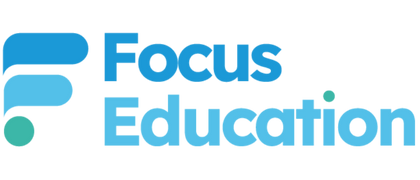
This blog has been written by Focus Education’s Associate Consultant, Tim Nelson.
Right, your starter for ten is where is that quote from?
It’s originally from the bible, so well done if you knew that. Have a house point.
The reason I chose that as a focus for this blog was because as we return to some sort of normality in school, subject leaders will be considering what monitoring and evaluation is going to look like and where to begin.
Some schools have managed some monitoring even with the restrictions in place. For example, pupil voice has been carried out remotely, sharing pictures of examples of pupils’ work. This has been undertaken via email or the staff server, and there has even been the continued use of systems like IRIS to share examples of teaching when pupils are in the classrooms. Other settings have felt this was not appropriate during the lockdown.
Either way, we will soon need to return to a system and cycle of regular monitoring and evaluation. This tends to be most effective for subject leaders when there is a clear plan and timetable for this activity. It still surprises me how many schools did not manage this rigorously before the pandemic. Many subject leaders are given some time to carry out their role, which might include a book scrutiny or learning walk, but not all schools have a clear plan for this to include all subjects and colleagues. As a result, there can be an overload in one week with six subject leaders all wanting everyone’s topic books and no more monitoring for half a term. Then, a flurry of learning walks as everyone chases everyone else around the school with clipboards… Okay, I’m exaggerating for effect, but you get the picture.
What do do
So the first suggestion, once the dust begins to settle and we return to normal school life and bubbles are a thing of the past, is for senior leaders to establish a clear programme and timetable for subject monitoring. It enables subject leaders to plan for a range of monitoring activities linked to the whole school and subject priorities. Avoid anyone treading on anyone else’s toes by ensuring there is not too much monitoring going on simultaneously.
The second suggestion is for subject leaders. Where to start? The curriculum is key, especially in establishing ‘lost learning’ and determining how this will be addressed. But then, why not focus on the pupil’s voice? It is not always prominent in non-core subject monitoring although it is a key feature of inspection deep dives.
What happened when I inspected a primary school…
Children tell it how it is, hence the title of this blog. I was once inspecting when a child approached me and asked me if I was one of the investigators. I replied that I was an inspector and introduced myself. He explained that they’d had a special assembly yesterday about the ‘special visitors’ who would be in school today and tomorrow. Then he told me everything the headteacher had said about best behaviour, they should only be putting their hand up in lessons if they really knew the answer, and what they might want to say about the lack of bullying in school…
So ask the children about a subject, what they have learned today and this week, what they have learned about in previous years and units of work, when they have applied their subject-specific knowledge and skills, what they do if they are stuck, how they have used reading to find out more information, what work they are particularly proud of and why…
You can glean a tremendous amount of helpful information in a relatively short time frame. And you’ll probably get material for a few vaguely amusing anecdotes, too. And we all need cheering up at the moment.

